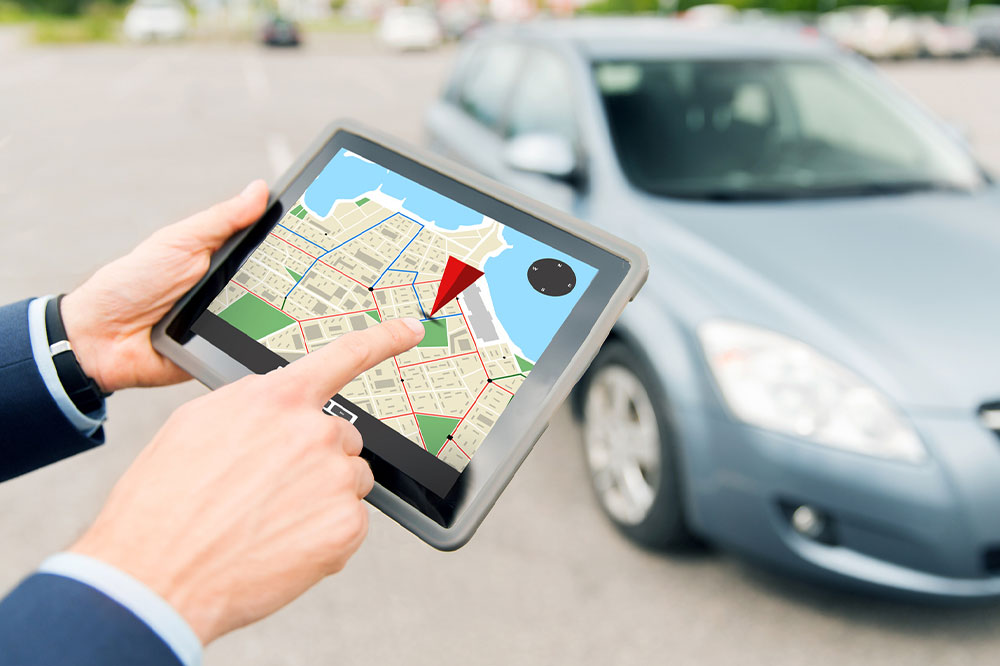
Types of GPS tracking devices and key benefits
Today, most people regularly rely on maps on their phones or cars to find their way. Many also use smartwatches to navigate a new hiking route. The Global Positioning System (GPS) was developed by the government to assist with defense security. However, its navigation and monitoring abilities have evolved so much since then that today GPS tracking is used by people all over the world for tracing and locating any entity remotely.
What is GPS tracking?
GPS tracking is a navigation technology that utilizes satellite signals to determine the location of an object in real-time. These signals are sent to GPS devices or units that have inbuilt tracking systems. The systems connect to the GNSS (Global Navigation Satellite System) to collect and send data regarding the location and direction of the object being tracked. GPS units are usually incorporated in devices such as tablets, smartphones, smart watches, or other dedicated gadgets.
Types
Based on the purpose, here are the broad types of GPS tracking devices:
Personal tracking devices
These trackers are meant to be used by an individual to locate another person or object. Here are some of the common types of personal devices:
Wearable trackers: Also known as wearable GPS tracking devices, these trackers are worn by a user or attached to their clothing. These units are mostly used by travelers or those who want to track pets, children, and elderly family members. These devices, like any other GPS tracking units, alert users through alarms or notifications.
Commercial tracking devices
Due to their design, commercial tracking devices can be used by multiple people, usually businesses, to track their assets or vehicles. Here are the common types of tracking units:
- Vehicle tracking devices: This design can track not just the location but also the movement of a vehicle. These trackers are mainly used for commercial purposes by businesses to monitor their fleet of vehicles. Location updates can be obtained from the driver’s mobile phone or the GPS installed in the vehicle. Vehicle GPS tracking devices can be categorized into the following types:
- Cell-based trackers: This is the most common and affordable type of commercial GPS tracking device. They capture and report data through cell towers, sharing fast updates with the business. Cell-based GPS units are common among delivery companies for monitoring vehicle location and tracking the delivery of orders in real time.
- Satellite-based devices: These GPS tracking devices come in handy in regions with no cell towers. They work better in remote locations and help the company have constant access to updates on the whereabouts of their vehicles.
- Plug-in trackers: Another option is to use plug-in devices, which are connected using an onboard connector and share details like the location of the vehicle, including the driver’s idle time and driving behavior.
- Hardwired units: These GPS trackers are directly connected to the vehicle, specifically the engine, and are considered to be the most accurate when it comes to data on the location, the health of the vehicle, and the driver’s behavior.
- Cellular GPS tracker: These devices have revolutionized the way smartphones are utilized. Today, instead of just being used to make calls, they are equipped with GPS tracking systems that help monitor and trace users’ location and movement. The phones use internet data or an app to capture, record, and report details regarding location.
- Asset trackers: These devices can track non-movable items, specifically the assets of a company. These may include tools and equipment on a job site or even goods and trolleys in a shopping mall. Also known as equipment trackers, asset GPS trackers are available in the form of satellite tags or radio chips, which are placed on the item to know its real-time location and movement patterns.
Benefits
GPS tracking offers many advantages to individuals and businesses alike. Here is a look at its key benefits:
- GPS trackers are the best options when it comes to ensuring the safety of loved ones, as they send real-time data about their whereabouts. This is especially helpful when there is an emergency or when one is in an unknown region.
- GPS trackers help companies trace their valuable assets and reduce the chance of theft.
- When used to monitor the location of vehicles, these devices not just ensure their safety but also bring down operational costs.
- They are the best options to optimize resources such as manpower and fuel.
- By ensuring the safety of assets and vehicles, these devices help reduce insurance costs.
GPS tracking devices have transformed the way people travel and how they optimize their safety. The technology continues to evolve to enhance personal safety and organizational efficiency.



